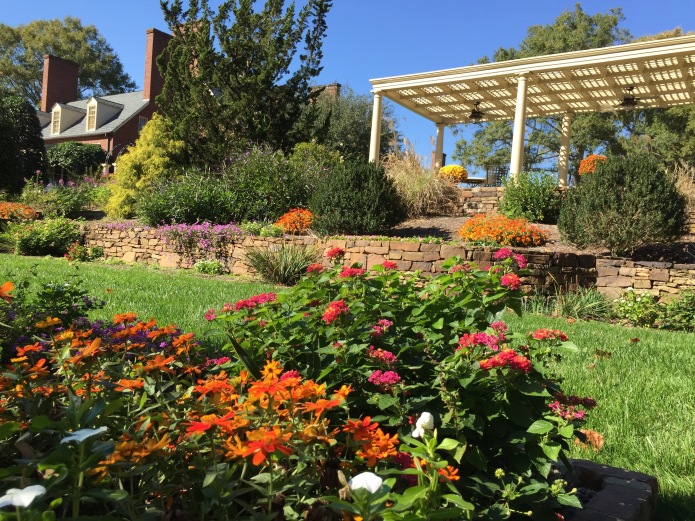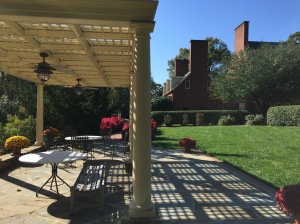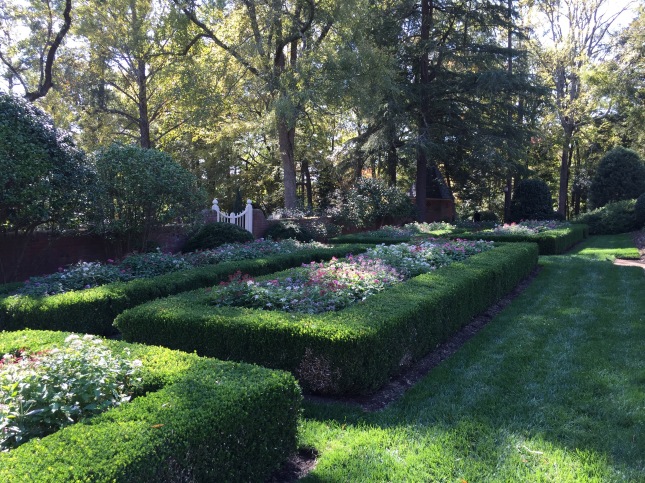When we first started planning for this new iteration of the Scholarly Communication Institute, a model that was mentioned several times was the Dagstuhl Seminars. Schloss Dagstuhl (Dagstuhl Castle) is an academic research center in the German countryside, and every year it hosts a series of seminars on informatics, where researchers from around the world gather to focus on specific topics. For a few days, participants live and work together in a setting far removed from their usual context, and the environment and informal structure contributes to outcomes that would be less likely back in the usual flow. In the area we’re working in – scholarly communications – Dagstuhl hosted a seminar in 2011 on the future of research communication, which led to the creation of FORCE11, a new organization supporting advancements in scholarly communication (slides reporting on that workshop can be found here).
I have fond memories of having spent time at a similar place in Italy, the Ettore Majorana Foundation and Centre for Scientific Culture, in Erice, Sicily, where I worked for a summer as an intern when I was a student. Erice has a similar model – a magnificent setting and an informal structure, with lots of social, cultural, and culinary activities mixed in with the scholarly work. Erice is a beautiful place, perched on a mountain 750 meters above the western coast of Sicily, with stunning views all around. Erice is also an ancient place, founded by the Elymians, and later occupied by Phoenicians, Carthaginians, Romans, Arabs, and Normans. The science center now makes its home in a four restored former monasteries, and scholars meet and live in halls and cells where medieval monks formerly roamed.
During the summer I was there, participants got to meet, listen to, and have dinner with people like Peter Higgs, Sheldon Glashow, and Victor Weisskopf. Mornings spent having coffee in a cloister, or evenings over drinks in a local pizzeria were as important to the experience as the meetings and discussions in the conference halls during the day.
This year, the Scholarly Communication Institute will be held in Chapel Hill, NC, at the Rizzo Conference Center. We don’t have a castle, nor centuries-old monasteries, (and don’t – yet – have any Nobel Prize winners attending) but the DuBose House and gardens, situated on a hilltop just outside the “southern part of heaven” are about as delightful as we get in this part of the world.
The conference facilities are recent, having been built by the University of North Carolina in the past 15 years, but the house at the core of the Rizzo Center (where we’ll be having lunches) and the gardens surrounding it date to the 1930s, with the property it sits on having a history that dates back to a land grant from the Earl of Granville in 1757. (See a history of the Rizzo Center and DuBose house here.) The facility has a bar on site, for informal and social meetings, and a pergola, balconies, and outdoor tables in the gardens and around the grounds, which will be conducive for working outside, or just taking a break in a beautiful setting if the weather cooperates. A short walk down the hill is Meadowmont Village where participants in SCI can find restaurants, shops, and other amenities.
The place is important, but so will be the format. This is not a conference where participants are coming with prepared presentations, or with program tracks that define discussion topics in advance. The schedule is only very lightly structured – meal times are fixed, as are a few opening and closing programs, but the rest of the schedule is a balance of totally unstructured time for project teams to work amongst themselves, and “plenary” times when all of the SCI participants will gather in a single conversation around topics of shared interest. The participants will set the agenda, and guide the shape of the activities and their outcomes.
In our early planning notes for SCI we wrote:
… the SCI invites working groups, rather than individuals, in order to foster broad awareness of complexity and tackle it collaboratively. Moreover, the new SCI invites multiple working groups in order to engineer the opportunity for serendipitous cross-pollination among different but related themes and challenges. Formal “downtime” (meals, walks, breaks) is an important part of this strategy. These unfettered water-cooler moments often give birth to great ideas. Thus, the SCI’s program will be flexible and as participant-directed as possible; we cannot schedule breakthroughs, but we can attempt to create conditions that favor them. The format is meant to help create an environment conducive to the kind of happy accidents that are born of the freedom to work hard with minimal constraints.
On November 9, this experiment will begin, and we hope to conclude four days later exhilarated and energized, having made new contacts, learned new things, developed new ideas, and perhaps started to build new programs. And yes, probably a little tired. But we hope that everyone will leave with a plan for what they can do to advance and influence the changing landscape of scholarly communication when they return to their usual work.
If you’re interested in joining us next year, keep an eye on this blog and the @TriangleSCI twitter stream, where early in the new year we’ll be announcing dates and an RFP for next year’s SCI.










